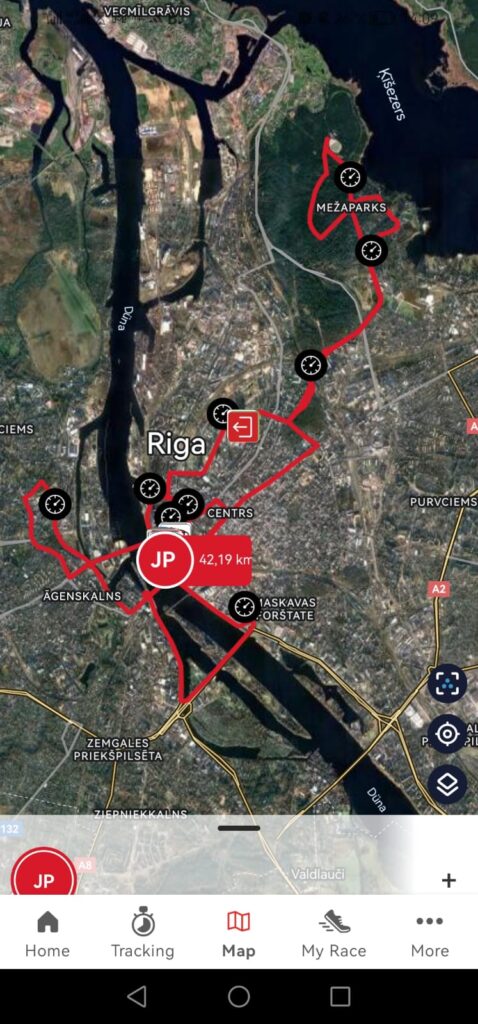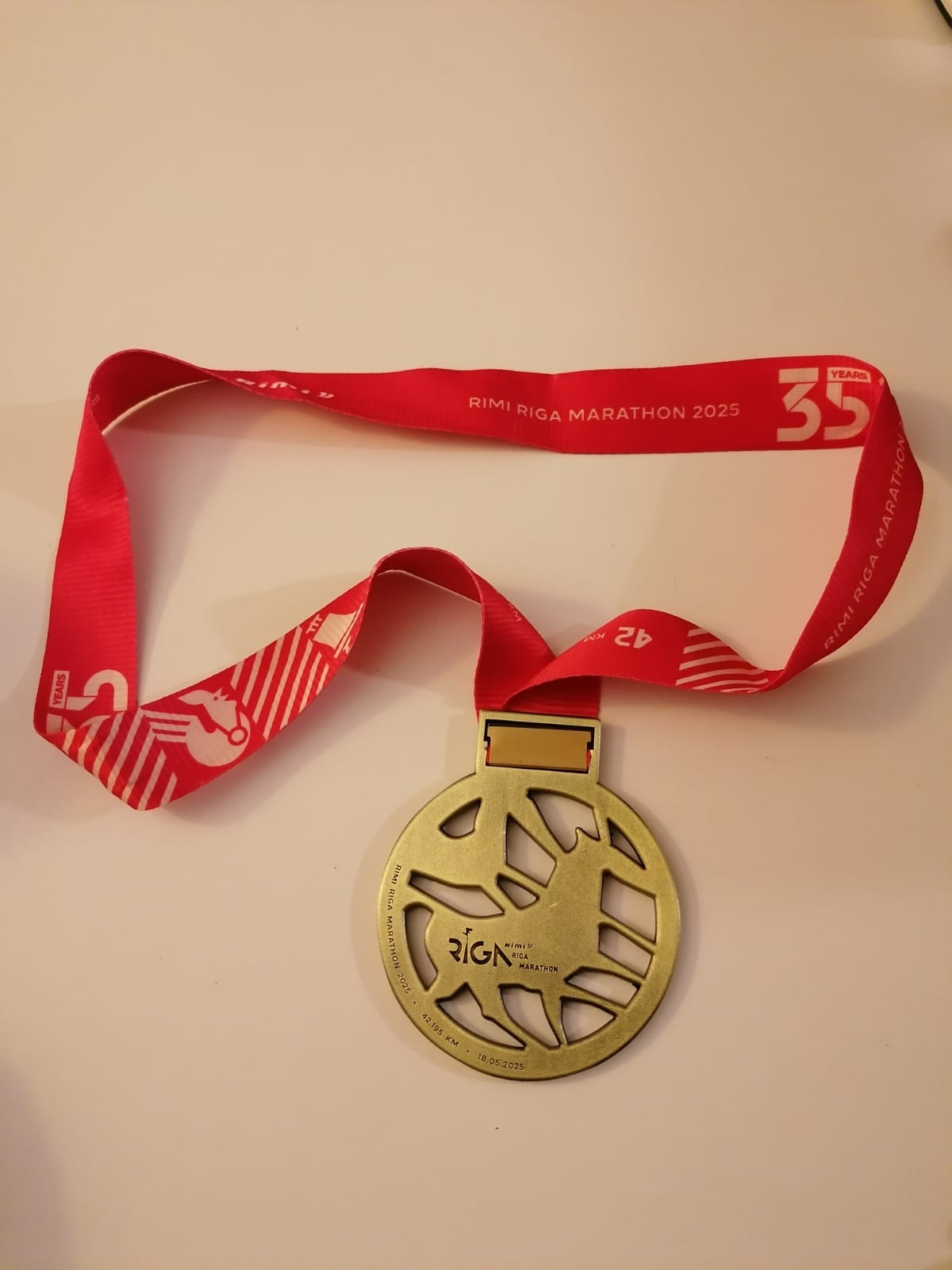Before the Marathon
It is Sunday, 5 a.m. I am already fully awake after only five hours of sleep. The nervousness has given me too much energy—not the kind of energy an athlete wants to have just before a marathon. The emotional stress may be unjustified, but it is very real. In just a couple of hours, I will start my first marathon (42 km), and I’m asking myself a lot of questions.
Not only about the past (Did I train enough? Did I rest enough before the marathon?), and the present (How much should I eat now? How many clothes should I take with me on this very rainy day?), but also about the near future (Will I make it? What should I do if I can’t run anymore?). I trained a lot over the last two months—not a long time to prepare for a marathon—but I’ve never stopped doing sports in my life, and I knew that with proper training and discipline, I could be fit enough to finish the marathon after two months of preparation.
The Marathon

The marathon started exactly at 7 a.m. I didn’t have any breakfast because I didn’t want to start the marathon while still digesting food. During training, I learned that I should eat about two to three hours before a long run. That would have meant breakfast no later than 5 a.m.
“It’s fine,” I told myself. “I can run the first 20 km without food—my body is capable of that. But after that, I’ll need some fruit. Worst case, I’ll use the chemical pack that many runners love: the famous energy gels.” The marathon organizers are excellent, so I knew exactly where the food and water stations were located. I had confidence in my training—and in both my mental and physical condition.
“Let’s run.”
After a little more than four hours, I finished the marathon. A good time, considering only two months of training. I shared with my closest friends exactly what I did to achieve this, because I knew that two months might not be enough to properly prepare the body to run 42 km. So, I had to test alternative ways to help my body recover faster between training sessions. And it worked!
Before, during, and after the run, I learned many things—lessons that cannot be learned by just reading books or having conversations. There is no replacement for real experience.
So here are, for me, the most powerful and surprising lessons from the marathon:
Lesson One: Seek advice only from people with real experience
Having an opinion is the easiest thing on this planet. Everybody has one. On the other hand, having an opinion backed by facts and knowledge is better—but still not enough.
Today, anyone can write a book about running a marathon or give a presentation about training, without ever having run one themselves. But if you want to run a marathon, you don’t need advice from someone who has never done it. On the contrary. Run away from them. You need to focus on your training and yourself. Therefore, eliminate any kind of unnecessary information.
Find runners with experience, ask for their advice, and listen carefully.
Lesson Two: Adapt the advice from experienced people to your situation
Once you start hearing the stories and advice from experienced runners, you’ll need to process that information and adapt it to your own situation. It depends on who you are and how much energy and time you want to invest in training.
Some runners might advise you to train for a full year. Others will support the idea of preparing in just two months. You shouldn’t let any kind of information discourage you. Likewise, you shouldn’t get overly enthusiastic about anything that just reinforces your assumptions. I knew a couple of people who had run already marathons. They were very skeptical about my training period. But I also met another runner who believed in it, and most importantly, in me.
Plan carefully what you can realistically do with the advice you receive, and adapt it to your personal goals—once you’ve made the decision to run the marathon.
Lesson Three: Find real support
Unlike the first lesson, where you need to seek advice from experienced runners, here you don’t necessarily need support from people with experience. What you need is support to help you overcome doubts, stay consistent with your training, and simply have someone to talk to about your progress, questions, timelines, nutrition, and more.
You need people who know that you’re training for a marathon, respect your schedule, and support your commitment. They’ll encourage you in ways that align with your goals. For example, instead of inviting you to a party on Friday night, they’ll understand your situation and suggest an early lunch instead.
Of course, it would be ideal if these people were runners themselves—but it’s not required. What matters most is having people around you who respect your journey.
Sharing the experience with others is one of the best ways to increase joy and reduce the pain along the way.
Lesson Four: Take care of both your mental and physical state
A marathon is not only about the body. The mental state plays a key role.
It’s not a coincidence that almost everyone running a marathon looks extremely positive. Some runners smile throughout the whole race—despite the pain—because they genuinely enjoy it. They enjoy the challenge, the movement, the effort.
Enjoyment is one of the best protections against failure—because when you enjoy something, you’re more likely to keep trying, and less likely to give up.
The mental state is crucial because, during a marathon, the mind has to overcome the body. This can also be dangerous if the body is pushed too far—leading to injuries. That’s why training is essential—it helps you learn your limits.
But mental strength isn’t only important during the run. It’s just as important during the training: to find the discipline to train despite bad weather, fatigue, or doubt.
You’re not just training your body for a marathon—you’re training your mind.

No responses yet